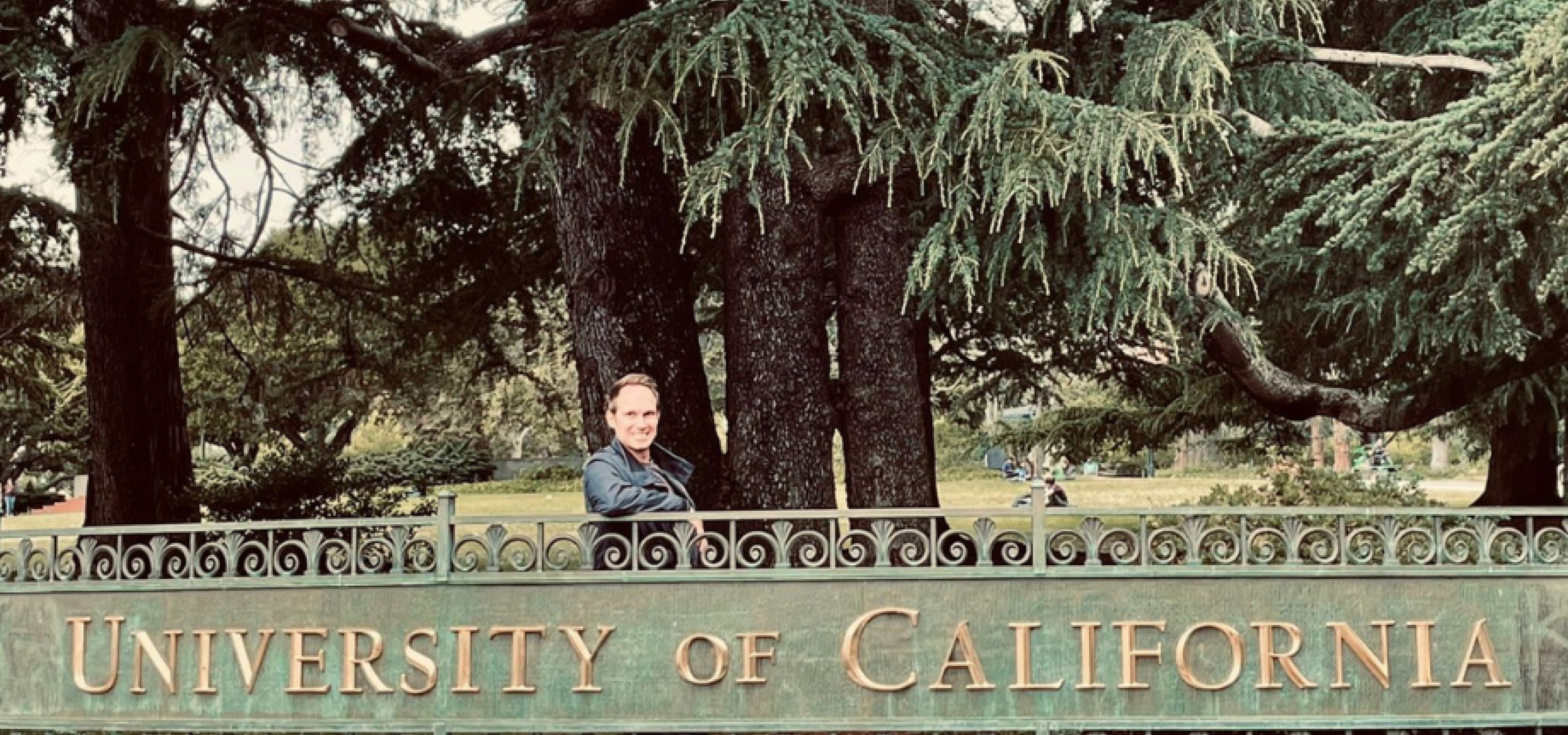
Professor Jolyon Ford has spent the past three months in the United States furthering his modern slavery research as a Fulbright Fellow.
The true nature of the Fulbright is to foster ever-deeper intellectual, cultural and other ties.
Professor Jolyon Ford SFHEA, Associate Dean (International) at The Australian National University (ANU) College of Law, has spent the past three months in the United States furthering his research on regulating human rights risks in global supply chains.
Professor Ford has been studying the California Transparency in Supply Chains Act 2010 under a Fulbright Fellowship at the Haas School of Business at the University of California, Berkeley.
“I wanted to better understand its design and operation for its own sake and because it was the basis for more recent Australian federal legislation (Modern Slavery Act 2018) modelled on the California experience,” he said.
Professor Ford explained that his research intentions were two-fold.
“Firstly, I wanted to expose some of my conceptual ideas to Berkeley colleagues (I also spent some days at Stanford Law School for this purpose) for their insights and perspectives,” he said.
“Secondly, I planned to interview those who helped drive, design and draft the 2010 legislation so as to gain a richer set of perspectives on some of the assumptions behind this influential model of legislation.”
Professor Ford achieved both objectives, although his visit coincided with a quiet time on the Berkeley academic calendar.
“I was also able to have fulfilling and informative conversations with philanthropic foundations that fund research on modern slavery and corporate responsibility,” he said.
“This may have some potential going forward and could extend the research connection well beyond the Fulbright.”
While Professor Ford is almost at the end of his fellowship and due to return to Australia soon, this project is ongoing and most of his research output, including a book proposal, will be completed during the remainder of 2022 and early 2023.
Professor Ford noted that “the Fulbright award will always be hugely significant in enabling that research and connections established through it.”
He also said the most impactful part of this experience has been the “support and congratulations from friends and family everywhere”, including his own children.
“It has been very meaningful to talk with my children about why we work, and why we love our work, and why sometimes that means either parent might go away, and to hear them express support and pride even though they are still young and do not understand everything except that their Dad ‘won’ a ‘prize’ and it took him to America,” Professor Ford said.
Another highlight for Professor Ford has been the “enthusiasm and curiosity of Californians of all sorts” when they learn that he is visiting from Australia on a Fulbright scholarship.
“Their interest in my research and the things that come up in conversation about Australia and the United States – from catastrophic fires and climate change, to gun control politics, to healthcare, to various myths and questions about Australia – has certainly been a highlight,” he said.
“What I will treasure most about the Fulbright is those many everyday interactions and conversations.
“That, and the incomparable public parks and trails of the Bay area, as well as the majestic Yosemite National Park.”
Professor Ford’s advice to colleagues is to explore the Fulbright scheme, and to new Fulbright Fellows is to “make full use of ‘the Fulbright effect’ and all the goodwill and recognition associated with it”.
“It is, after all, part of a scholar’s mission as a cultural ambassador to raise awareness of the Fulbright scheme and the huge diversity and richness of research it supports,” he said.
“The true nature of the Fulbright is to foster ever-deeper intellectual, cultural and other ties. This is an ongoing process, and I would advise new scholars to see the actual time in the US, however long it is, as only one part of the wider idea of relationships built around the Fulbright.”
The Australian-American Fulbright Commission offers Scholarships to Australian citizens across all career stages. Awardees take part in a bilateral academic and cultural exchange, pursuing research or study at a US institution.